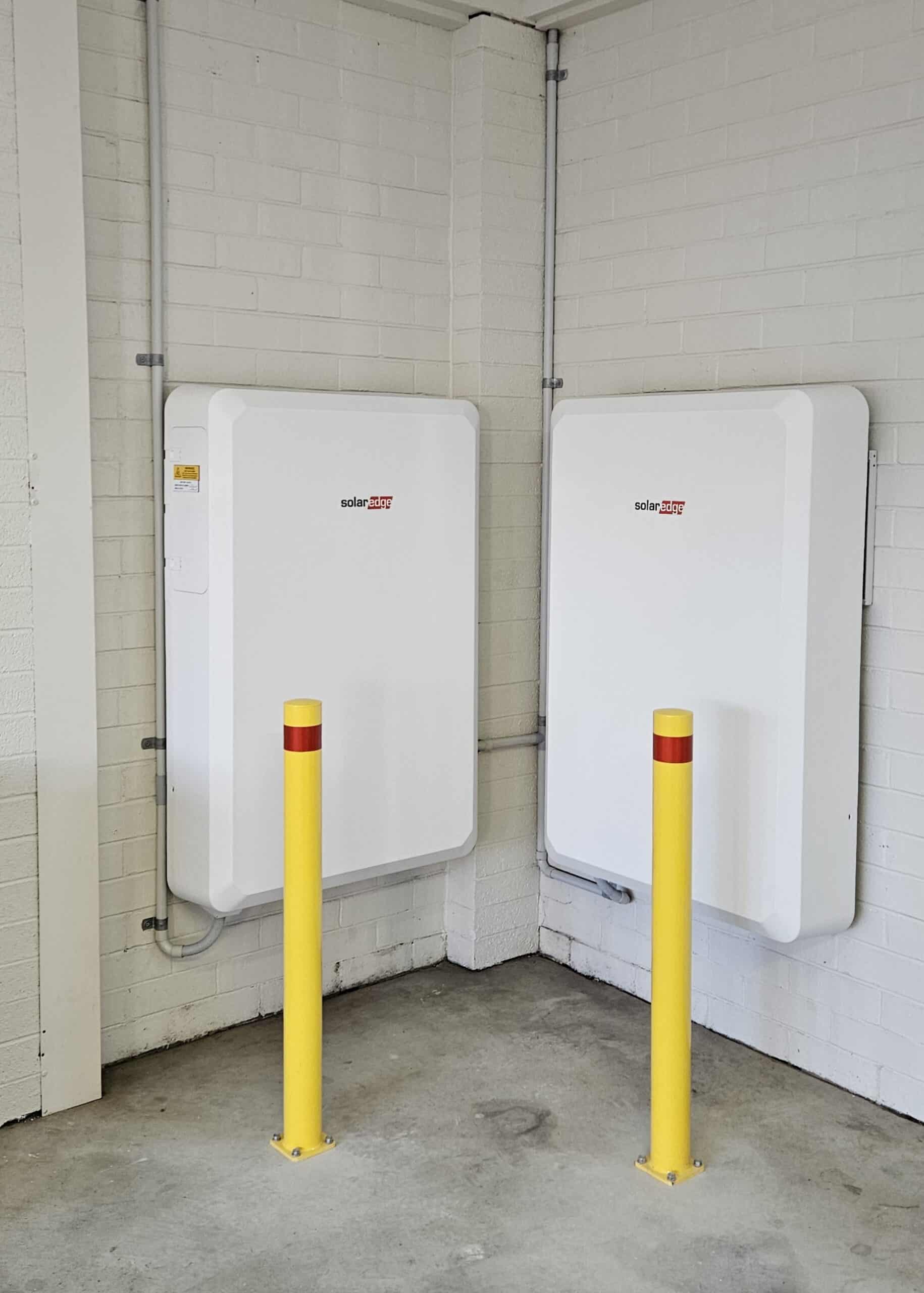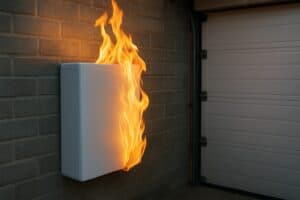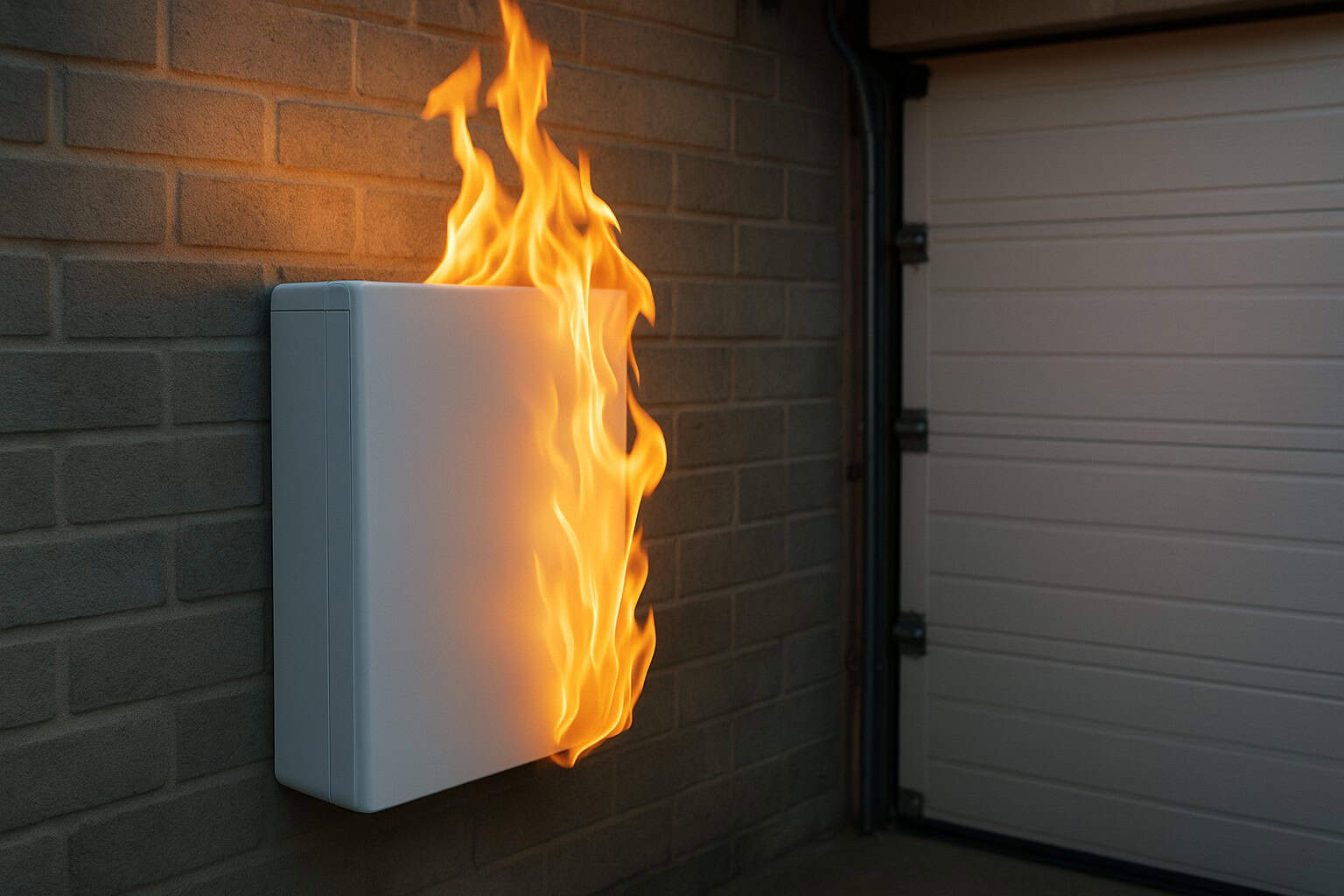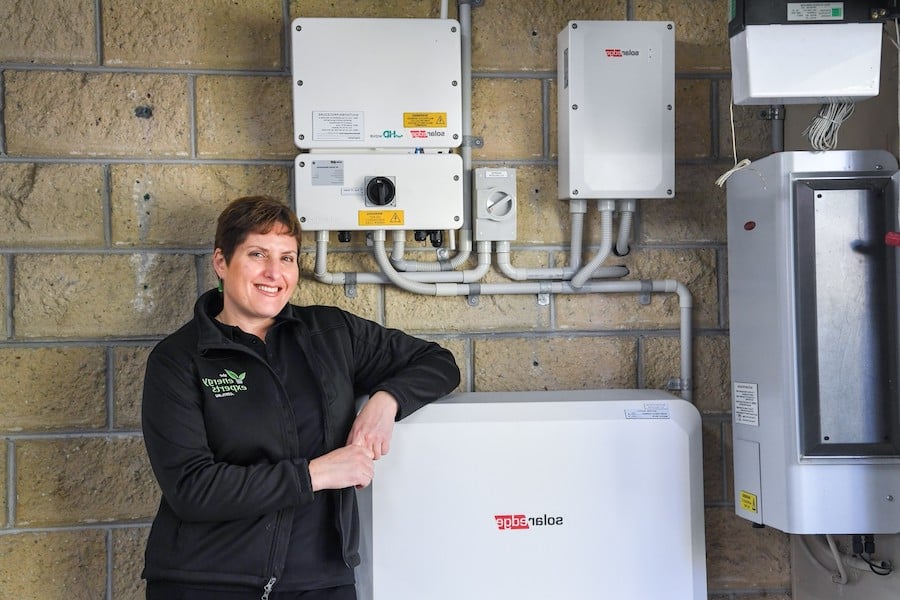While lower-priced systems may be tempting, choosing a poor-quality battery could compromise safety, performance and long-term value. Higher-quality systems may initially cost more, but they offer greater efficiency, reliability and most importantly, safety.
The risks of low-quality battery storage systems
Solar battery energy storage systems (BESS) must comply with safety regulations under the Australian Battery Standard (AS/NZS 5139:2019).
These standards specify safety requirements for battery installations, including installation location, ventilation, and appropriate signage. However, there are few provisions preventing the sale of lower-tier products. For the consumer, this means you may be purchasing a cheaper battery that isn’t the safest or most reliable option.
Most home solar batteries use lithium-ion chemistry, which, while more efficient than older generation batteries, is also highly flammable. Installing batteries incorrectly can compromise safety. The risk increases with a poor-quality battery that lacks adequate internal safety features to prevent or correct overheating, which could potentially spark a fire.
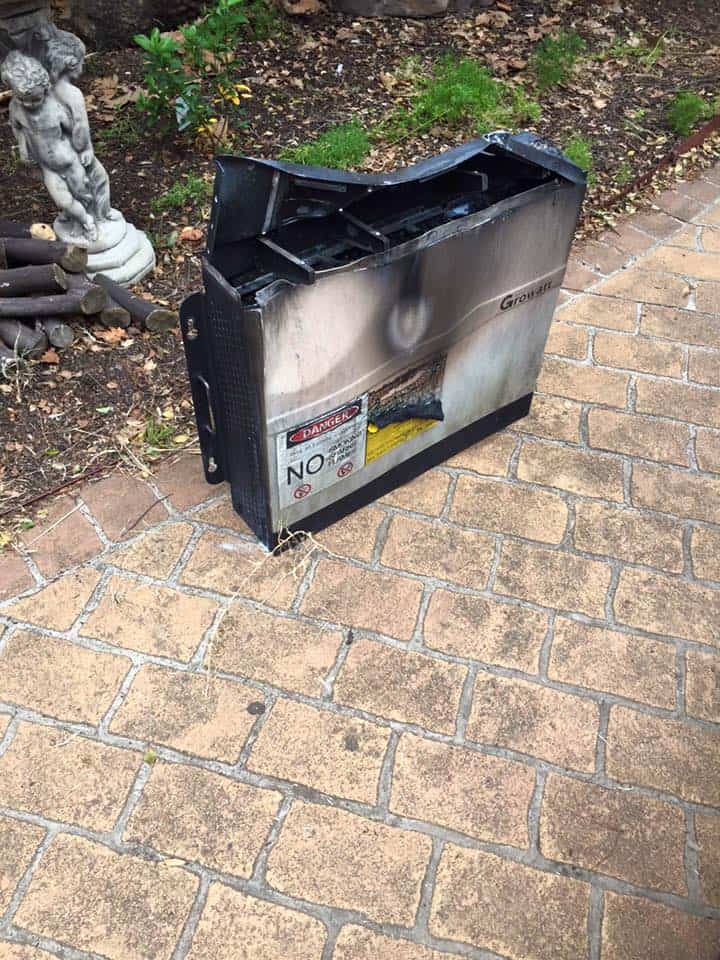
Why premium solar battery energy storage systems are worth the investment
As a house is generally the most expensive asset most people own, many homeowners are preferring to install safe, reliable battery energy storage technology that’s professionally installed by an accredited solar energy provider.
At The Energy Experts, we supply and install only premium-quality batteries, such as the SolarEdge Home Battery, which features industry-leading safety technologies. These include Rapid Shutdown, SafeDC, and a built-in network of multi-point temperature sensors designed to detect and prevent overheating.
Beyond safety, there are tangible performance and financial benefits to choosing a trusted brand:
- More efficient operation. Premium batteries offer more accurate charge and discharge cycles, helping to maximise the battery’s lifespan.
- Durability. These batteries are manufactured with superior components. They typically experience fewer faults and a longer operational life. Most come with 10-year warranties, but many last much longer.
- Feed-In tariff benefits. Some premium brands are compatible with virtual power plants (VPPs), allowing you to further reduce your energy bills by sharing stored energy with the grid during peak times. Depending on your electricity retailer, you may also be able to earn additional income through their solar feed-in tariff scheme.
- Multiple daily discharges without penalty. Many battery providers will only give you the option of 10,000 cycles or 10 years warranty (whichever comes first). If you join a Virtual Power Plant (VPP), your battery can potentially be discharged multiple times a day. With better quality inverter & battery technology, you won’t be penalised with your warranty for discharging your battery multiple times a day.
In contrast, a cheaper battery may save you some money upfront but could cost you far more in lost efficiency, repairs and warranty exclusions.
How to choose a good-quality solar battery storage system
With both the Federal and NSW government rebates on offer, now is a great time to invest in battery storage. But choose wisely. Here’s a good starting point for doing just this:
- select a battery system on the Clean Energy Council (CEC) approved product list. Best to choose a big-name brand that’s been around for some time and has a presence in Australia, such as Tesla, SolarEdge, Sungrow, BYD, LG or SigEnergy.
- choose an installer accredited by Solar Accreditation Austaliawho will ensure your solar battery system meets all state electrical safety requirements. Ideally, choose a company that’s been installing batteries for more than 5 years.
